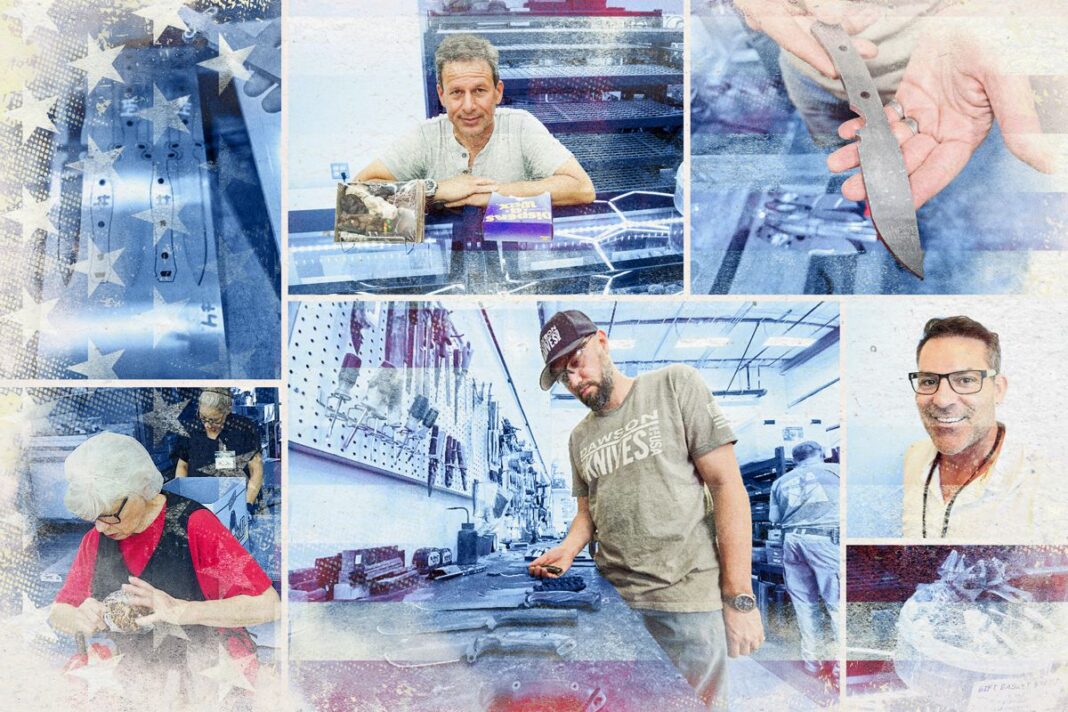By sourcing materials domestically and thinking locally, U.S.-based companies say they’re in a better position to survive—and thrive.
PRESCOTT, Ariz.—It’s more than just a label. “Made in America” represents pride and the national spirit, says John Roy, CEO of Dawson Knives in Prescott, Arizona.
The company he heads is a prime example of that spirit. Founded more than 50 years ago by a Vietnam vet with machinery made from parts found in a local landfill, the knife company boasts that it’s “three generations strong.”
Roy believes domestic companies will thrive under the import tariffs enacted by the Trump administration.
With consumption accounting for nearly 70 percent of the U.S. economy, Roy believes there is a strong market for products made in America.
In 2023, nearly half of the goods purchased by Americans were “made in America,” according to the Department of Commerce. That figure comes with the caveat that “made in America” sometimes means “assembled in America,” with products containing imported components.
The total gross domestic purchases in the country reached $3.7 trillion, with $1.9 trillion of that amount attributable to U.S. industries.
“When you keep it domestic and your dollars here [in America], it pays off,” Roy says proudly, wearing a T-shirt and cap emblazoned with his company logo.
“We rode out a pandemic, and we’re going to ride through these tariffs,” he told The Epoch Times.
That’s not just a bold statement, Roy said.
After President Donald Trump announced a sweeping array of tariffs on April 2, Roy reported that Dawson’s knife sales increased from $11,000 to $15,000 per day.
He said the company expects orders to double from 4,000 to 8,000 for 2025. It produces 40 different models of knives, including hunting, survival, culinary, and heirloom varieties.
Roy is convinced that many American companies can withstand a global trade war by sourcing materials domestically and maximizing production efficiency.
“In order to have that efficiency, we have to really invest in computers … everything to help us down the line to make better models, better manufacturing, and reduce steps,” he said.
The company currently employs 15 people and operates within 12,000 square feet of industrial space.
Roy said many consumers prefer goods that are “completely American-made.”
By Allan Stein









